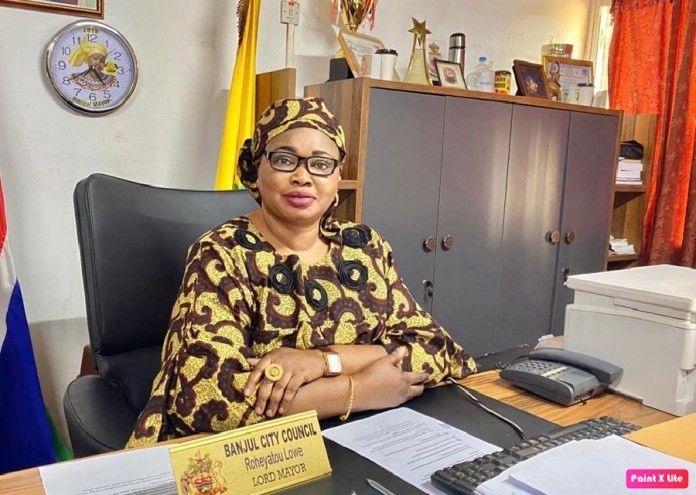The Banjul City Council has operated without Standing Orders since 2018, Mayor Rohey Malick Lowe admitted Tuesday while testifying before the Local Government Commission of Inquiry.
Mayor Lowe, who has served as head of the capital’s municipal council since 2018, made the revelation during her appearance before the Commission, which is investigating the financial and administrative conduct of all local government councils between May 2018 and January 2023. Her written statement, dated March 5, 2025, was formally tendered and admitted into evidence.
Responding to questions from Lead Counsel Patrick Gomez, Lowe disclosed that despite the legal and procedural necessity of Standing Orders to guide the internal workings of the council, none had been in place since she took office. She said efforts to develop them only began either towards the end of the previous term in 2023 or the start of the current one.
“Our lawyer, Sasum Sillah, is working on the Standing Orders together with the administrative department and the deputy mayor,” she said. The mayor further stated that the issue had been discussed at council level and that a resolution was passed to initiate the process. However, she was unable to produce the resolution and was asked to provide it later.
The absence of Standing Orders — the rules that define procedures for meetings, decision-making, and accountability — has raised concerns among governance observers and Commission members alike. The mayor’s statement suggests that for over five years, the capital’s local government authority has functioned without formal internal regulations.
Mayor Lowe said BCC had established four key committees—Finance, Establishment and Appointment, Youths and Sports, and one she could not recall. She said the selection of committee members was done by the general council.
In addition to the Standing Orders issue, Lowe was also questioned about the nomination process for councilors, the absence of familiarity with financial laws such as the Finance and Audit Act, and the extent of her powers in authorizing council expenditures. She asserted that the Chief Executive Officer (CEO) held exclusive authority over spending, a claim the Commission challenged.
The hearings continues as the Commission probes deeper into the administrative frameworks and accountability systems of local councils across the country.


















